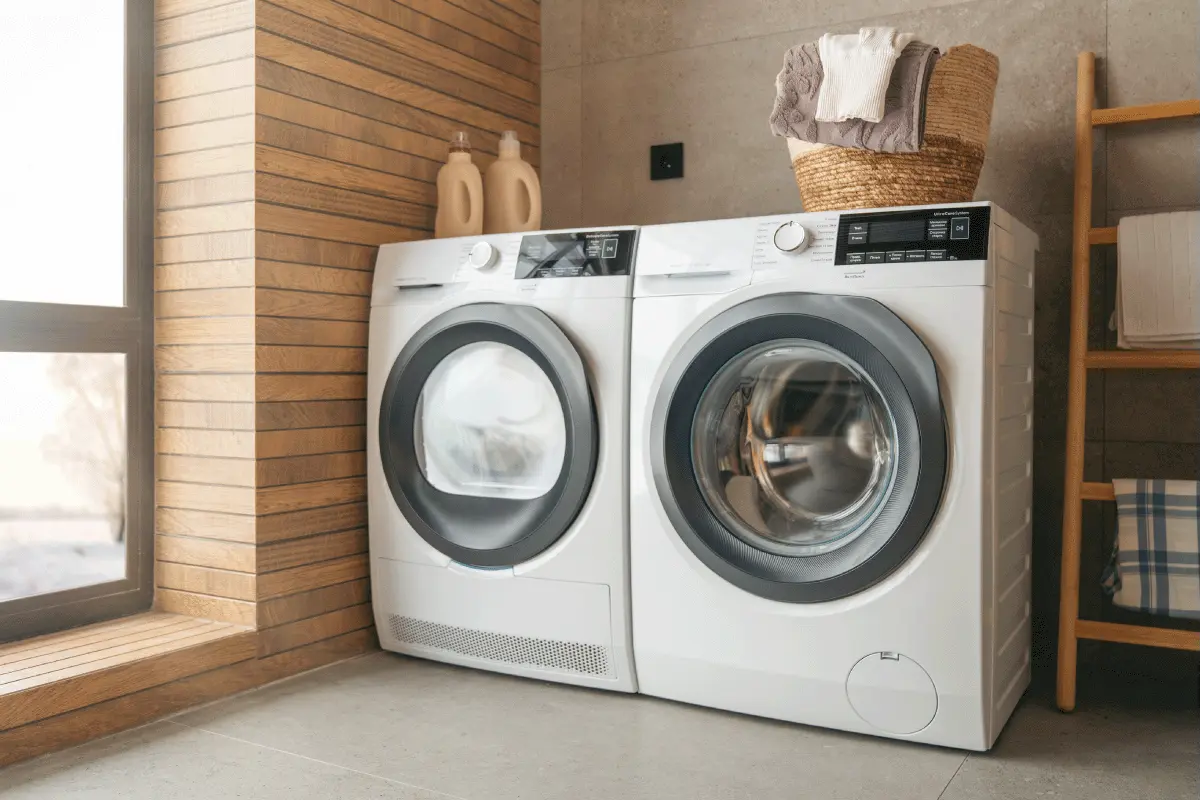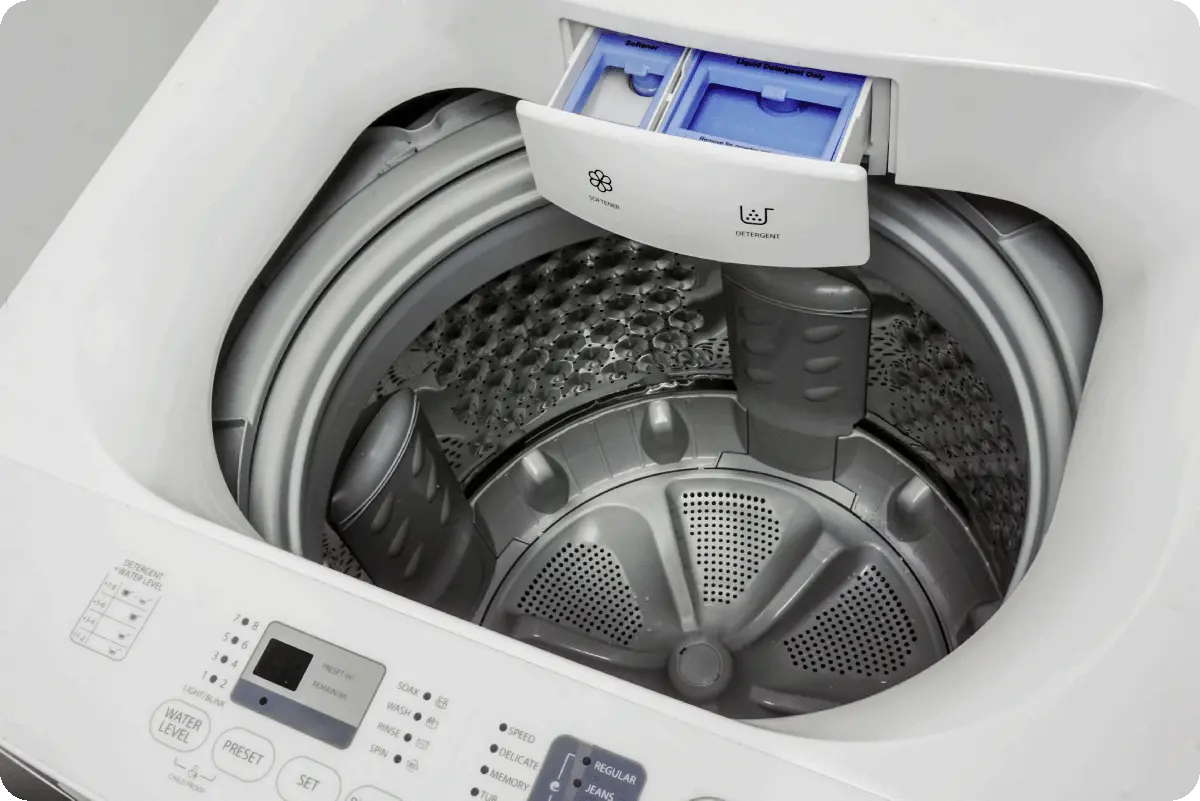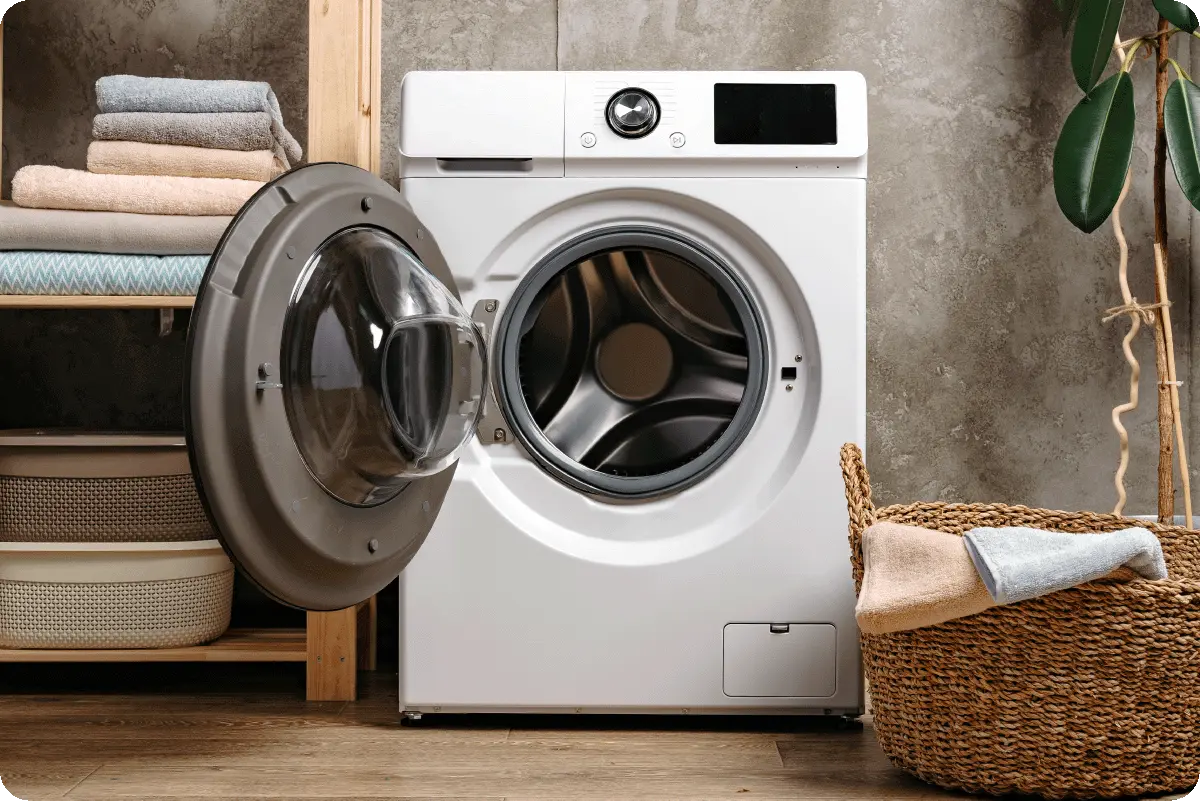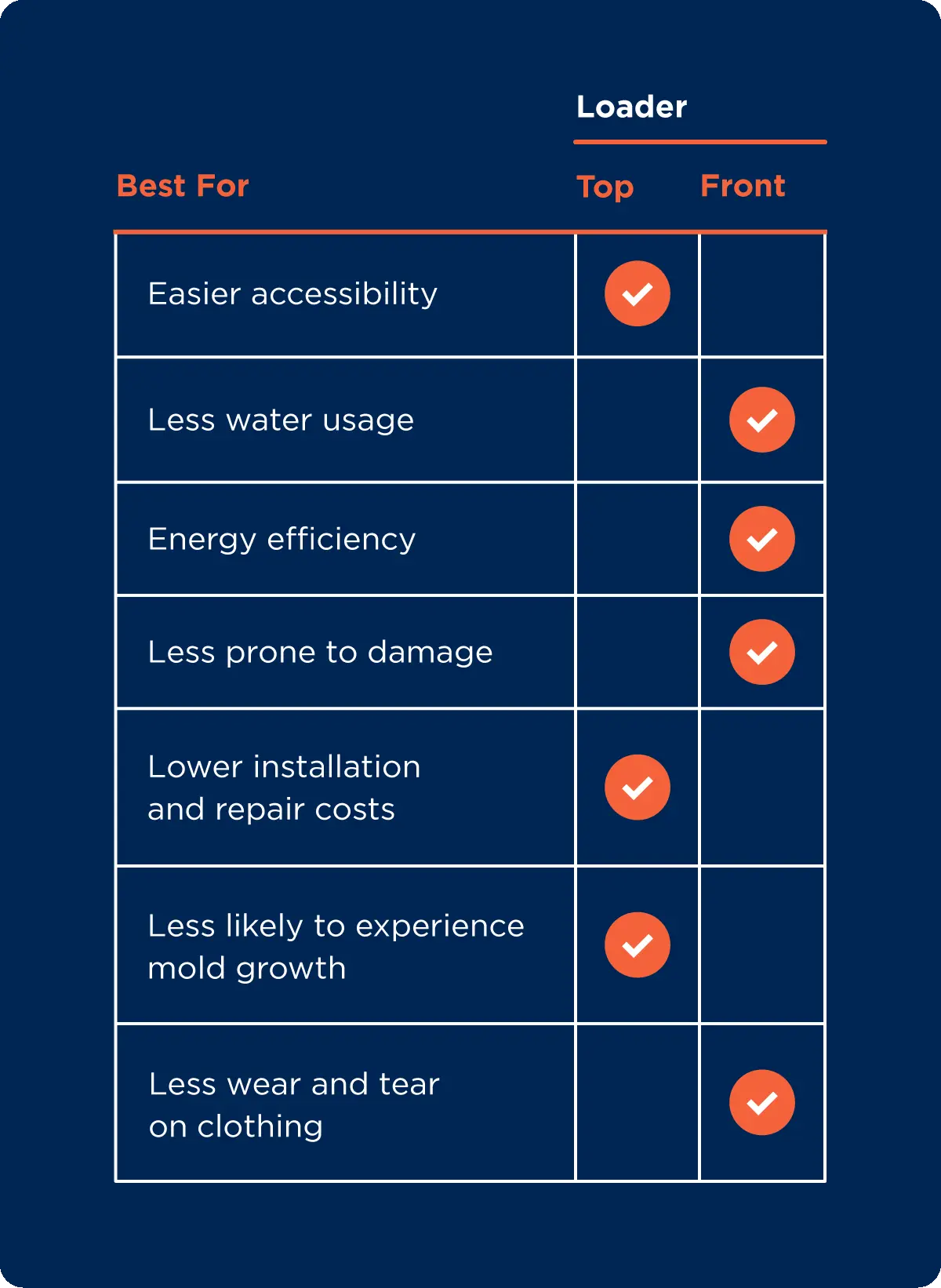Top-Loader vs. Front-Loader Washer

Are top-load washers better than front-load?
The debate between top-loader vs. front-loader washers comes down to individual preferences. Many people swear by top-loader washing machines because of their simple features, low-cost repair maintenance, and ability to add clothes mid-cycle. Others argue front-load machines are better due to their tumbling mechanisms and efficient use of water to gently and thoroughly clean clothing.
Ultimately, the best washer for you will depend on performance, practicality, and individual preference. In this article, we’ll review the pros and cons of both front-load and top-load washers, the best features of top-loaders and front-loaders, and their key differences so you can decide which type is best for you.
What's the Difference between a Top-Loader and a Front-Loader Washer?
There are a few differences between top-loader vs. front-loader washers. Top-loaders have larger interiors, making them ideal for bulkier bundles such as comforters or thick sheets, and their lid makes them easier to load than front-loaders.
Some top-loaders have a central post or impeller for spinning motions and generally have a longer lifespan than front-loaders. Front-load washers tumble clothes rather than spin them, which many believe is a more efficient way to clean clothing. They also use less water than top-loaders and are more convenient for those who prefer to sit while doing their laundry.

What Is a Top-Load Washer?

A top-load washer sits vertically at waist height with a wide barrel-like opening. These washers have a hinged lid at the top of the machine with a central post inside or a disc at the bottom for spinning loads, offering easy access when loading and unloading laundry.
The loading process is one of the primary distinctions between top-loader and front-loader washers. Because the lid sits on top, top-loaders provide more convenience for quickly throwing laundry inside. These loaders are popular because they are easier to use, put less strain on your back and knees, and are less expensive to repair if something goes wrong, such as your washing machine not draining.
Pros and Cons of Top-Load Washers
These appliances each have their own set of benefits and drawbacks, so consumers should weigh their options before making a purchase. Top-load washers are a popular choice based on their user-friendly approach to laundry.
Below are some other pros and cons of top-load washers:
Pros:
- Lower purchasing price
- Easier to use
- Less costly to repair
- Mold growth is rarer
Cons:
- Agitator can be harsh on clothes
- Possibly repeats rinse cycles without an agitator
- Less energy efficient
- May be challenging for some people to reach the bottom of the barrel
What Is a Front-Load Washer?

Front-load washers have a front door that opens horizontally instead of up like top-loaders. These washers have a smaller load capacity and clean clothes with a tumbling motion rather than an agitator, making them gentler on delicate fabrics.
The main benefit of front-load washers is their ability to save energy and water. Front-loaders use 2,000 to 3,000 fewer gallons of water per year and less power than top-loaders because their higher spin speeds extract more water from clothes.
Pros and Cons of Front-Load Washers
Front-load washers are becoming more popular in modern homes due to their energy efficiency. Understanding the pros and cons of front-load washers is essential to finding the ideal washing machine for you.
Below are some pros and cons of front-load washers:
Pros
- Gentler on clothes
- Faster spin cycles
- Uses 45% less energy
- Apartment- and condo-friendly, as many brands are stackable
- Small enough to install under a countertop or low shelf without a lid
- More accessible for shorter people or those in wheelchairs
Cons
- Often more expensive
- You may have to bend down to unload the machine
- Mold growth is more common with the airtight door, possibly causing bad washing machine smells
- More expensive to repair when damaged
Which Is Best for You, a Top- or Front-Load Washer?
The debate over front-loader vs. top-loader washing machines is far from over. Both washer types have undergone technological advancements to meet consumer demand in recent years, so it's essential to consider the current benefits.
The ideal washer for you will depend on the space in your home, where these appliances are installed, your budget, and the types of clothes you generally wear.
Before deciding between a top- or front-load washer, consider the following:

- Clothing material: If you frequently stain your clothes or wear primarily blue jeans and outdoor clothing, a top-loader is probably better for you. For delicate materials, front-loaders are less harsh on clothing.
- Laundry habits: If you tend to overstuff your washer the top loader is better for you. If you have problems with bending down, opt for a top-loader for easy loading.
- Layout of your home: If you have a small house and are considering the best place to put your washer, a front-load washer may be a good option due to its ability to be stackable. A top-loading washer with a vertical lid is a better option if you don't have enough space for a washer door to swing out.
- Water and energy efficiency: If you want to save more on energy year-round, front-load washers are more water- and energy-efficient than top-loaders.
- Cost: Top-load washers have lower installation costs than front-load washers, but with proper washing machine maintenance, you can keep your front-load washer in good health and reduce your energy costs over time.
- Spin speed: Front-load washers have higher spin speeds, which reduces energy consumption for the dryer since your clothes are less damp.
- Maintenance: The watertight door seals on front-load washers are prone to mildew and mold growth. Before deciding, research ways to clean front-load washer mold and consider whether you are willing to put in the time to keep it clean.
- Compare reviews: Comparing top-loader vs. front-loader washer reviews is an excellent way to determine which performs better and meets your household's needs.
Remember — you might need to update your laundry room's electrical setup when installing a new washer. GFCI protection is required as of 2014, whether a sink is present or not, and you need a dedicated circuit. Mr. Electric®, our fellow Neighborly® brand, can tell you everything you need to know about circuits for your laundry room.
Schedule Washing Machine Repair
Nothing is damage-proof when it comes to top-loader vs. front-loader washers. Mr. Appliance® services both top-loading and front-loading washing machines. When your laundry appliances act up, count on our service professionals to help you identify washer issues early on to reduce the risk of water damage or costly repairs. To speak with our experts, schedule an appointment online or call the nearest Mr. Appliance location today.
FAQ About Top-Loader and Front-Loader Washers
Explore these frequently asked questions about top-load and front-load washers to help you choose the best option for your household.
Do Top-Loaders or Front-Loaders Last Longer?
On average, top-loaders last a few years longer than front-loaders, but most washing machines can last 10 years or more, depending on use and maintenance. To extend the life of your washing machine, clean your vents and filters regularly, avoid overloading your washer, and always wash full loads to prevent overuse.
Are Front-Load Washers Better?
Front-load washers are better for lower energy use, washing delicate clothing, and running shorter dryer cycles. Consider a front-load washer if you want to reduce your utility bills over time or wear delicate clothing.
Do All Front-Loaders Have Mold Problems?
Mold does not grow in all front-load washing machines, but it is possible since the tight door seal retains moisture. Regular cleaning and maintenance can help prevent this issue.
 Click to call
Click to call


